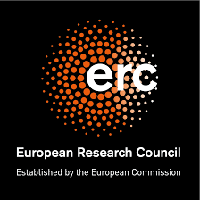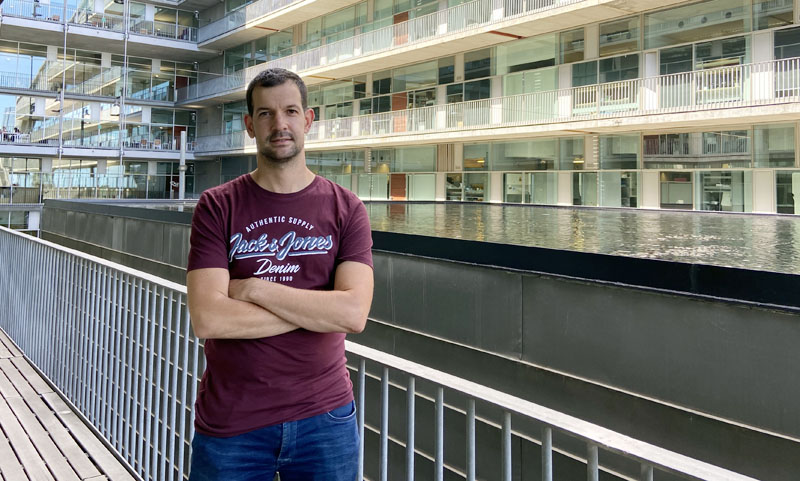
03/09/2020 - Press release
Arnau Busquets-García, an IMIM researcher, receives an ERC Starting Grant for scientific excellence

The European Research Council (ERC) has awarded Dr. Arnau Busquets García, a Ramón y Cajal researcher at the Hospital del Mar Medical Research Institute (IMIM), with a prestigious ERC Starting Grant. This recognition includes 1.5 million euros to develop a 5-year project.
Grants from the ERC, which are part of the European Union's Horizon 2020 research and innovation program, are the main source of European funding for research excellence. They support highly innovative projects led by outstanding and internationally renowned researchers, with the aim of helping them to build their own teams and carry out pioneering research in Europe.
In this year's edition, 3272 applications were submitted and 436 grants were awarded, for a total of 677 million euros. The recipients have 40 different nationalities and the projects will be developed in 25 different EU member states. The countries awarded the most grants are Germany (88 grants), the UK (62), the Netherlands (42), and France (38). Spain secured a total of 23 grants, 7 of which are going to Catalan research centers.
"Through these ERC grants, the EU is tapping into the talent and curiosity of some of Europe's best young researchers. Their ideas are unlocking new ways to tackle urgent challenges in the areas of health, energy, and digital technologies, as well as many other fields. To be effective in the face of current and future crises, support for research must be maintained and strengthened even further", explains Mariya Gabriel, the European Commissioner for Innovation, Research, Culture, Education and Youth.
The ERC offers four basic grant schemes: Starting, Consolidator, Advanced and Synergy Grants, in three areas, physical sciences and engineering, life sciences, and social and humanitarian sciences. It is estimated that this year's grants will generate approximately 2,500 jobs for postdoctoral fellows, students and other staff linked to the host institutions.
The main aim of the successful ERC Starting Grant Project "Beyond classical conditioning: Hippocampal circuits in higher-order memory processes" is to understand how the brain encodes and stores complex associative processes, which determine our daily decisions and are the basis of pathological brain disorders such as positive psychotic states.
Previous experiences influence how animals and humans adapt to changes in their environment. Although direct associative learning between a neutral stimulus and a negative or positive stimulus (i.e. reinforcer) has been the major focus in the field of cognition, other forms of learning are gaining popularity as they are likely more relevant and frequent in human daily choices. These complex cognitive processes, called higher-order conditioning, depend on incidental associations between neutral stimuli in the environment and are crucial to predict future events and to adapt individuals' behavior.
These processes explain why animals or humans are often repulsed or attracted by stimuli, which do not have intrinsic repellent or appealing value and they were never explicitly paired with negative or positive outcomes. A proposed explanation of these "ungrounded" aversion or attraction is that these stimuli were incidentally associated with other cues directly associated with positive or negative outcomes, through a process called mediated learning. The brain mechanisms controlling these incidental associations between neutral stimuli have not been extensively studied although they could represent the basis of our daily choice or brain disorders such as psychotic states.
In this project, Dr. Busquets García will use genetic, pharmacological, imaging and mouse behavioral approaches to characterize the specific brain circuits involved in these complex associative learning. In other words, this project will improve our understanding on how the brain encode and store previous experiences in order to guide future behavioral responses and how these processes might be affected under psychotic states.

Photo: Dr. Arnau Busquets García. Font: IMIM
Dr. Arnau Busquets García, researcher in the Neuroscience Program of IMIM, leads a research line entitled "Cell-type mechanisms in normal and pathological behavior" since September 2019. He performed his PhD in the Neuropharmacology Group at the DCEXS of the University Pompeu Fabra studying the role of the endogenous cannabinoid system in memory consolidation and anxiety-like responses in physiological and pathological conditions. After his PhD, he joined the laboratory of Dr. Marsicano at the NeuroCentre Magendie in Bordeaux, were he tried to understand the link between cannabis and psychotic-like states and he also investigated the role of cannabinoid receptors on higher-order conditioning. Overall, during his research career, he led high quality and impactful research being first-author in papers published in Nature, Neuron, Molecular Psychiatry, PNAS, Nature Medicine, and Biological Psychiatry, among others.
The study of cannabinoid receptors in different functions allowed Dr. Busquets-García to develop a specialization level to investigate detailed cell-type specific brain mechanisms and their impact on complex behavioral responses. In his future research work, he aims at focusing on the detailed molecular, cellular and behavioral mechanisms that can explain complex cognitive behaviors, such as higher-order conditioning, which are the basis of our daily choices and could explain pathological situations such as psychotic-like states.
Servei de Comunicació:
Marta Calsina Freixas(ELIMINAR)
Tel:
(+34) 93 316 06 80
Doctor Aiguader, 88
08226 Barcelona
© Institut Hospital del Mar
d'Investigacions MèdiquesLegal Notice and Privacy Policy | Cookie Policy | Site Index | Accessibility | Find Us | Contact